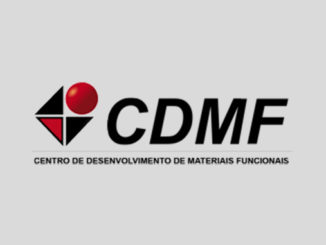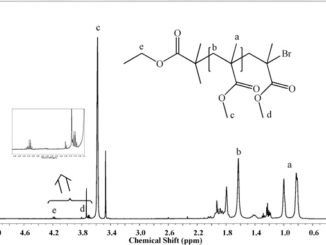
Ruthenium(II) complexes of Schiff base derived from cycloalkylamines as pre-catalysts for ROMP of norbornene and ATRP of methyl methacrylate
Abstract: Ruthenium(II) complexes of Schiff base derived from cycloalkylamines (cycloalkyl = cyclopentyl (1a), cyclohexyl (1b), cycloheptyl (1c), and cyclooctyl) (1d) were synthesized: [RuCl(CyPen-Salen)(PPh3)2] (2a), [RuCl(CyHex-Salen)(PPh3)2] (2b), [RuCl(CyHep-Salen)(PPh3)2] (2c), and [RuCl(CyOct-Salen)(PPh3)2] (2d). The Schiff base-RuII complexes 2a-d were characterized by elemental analysis, FTIR, UV-Vis, 1H-, 13C and 31P NMR, and cyclic voltammetry. The complexes 2a-d were evaluated as catalytic precursors for ROMP of norbornene (NBE) and for ATRP of methyl methacrylate (MMA). The syntheses of polynorbornene (polyNBE) via ROMP with complexes 2a-d as pre-catalysts were evaluated under different reaction conditions ([HCl]/[Ru], [EDA]/[Ru], [NBE]/[Ru], and temperature). The highest yields of polyNBE were obtained with [NBE]/[HCl]/[Ru] = 5000/25/1 M ratio in the presence of 5 μL of EDA for 60 min at 50 °C. MMA polymerization via ATRP was conducted using the complexes 2a-d in the presence of ethyl-α-bromoisobutyrate (EBiB) as initiator. The catalytic tests were evaluated as a function of the reaction time using the initial molar ratio of [MMA]/[EBiB]/[Ru] = 1000/2/1 at 85 °C. The linear correlation of ln([MMA]0/[MMA]) and time indicates that the concentration of radicals remains constant during the polymerization and that the ATRP of MMA mediated by 2a-d proceeds in a controlled manner. Molecular weights increased linearly with conversion, however, the experimental molecular weights were higher than the theoretical ones.
Author(s): Afonso, Maria Beatriz A.; Cruz, Thais R.; Silva, Yan F.; et al.
Journal of Organometallic Chemistry
DOI: https://doi.org/10.1016/j.jorganchem.2017.09.043




